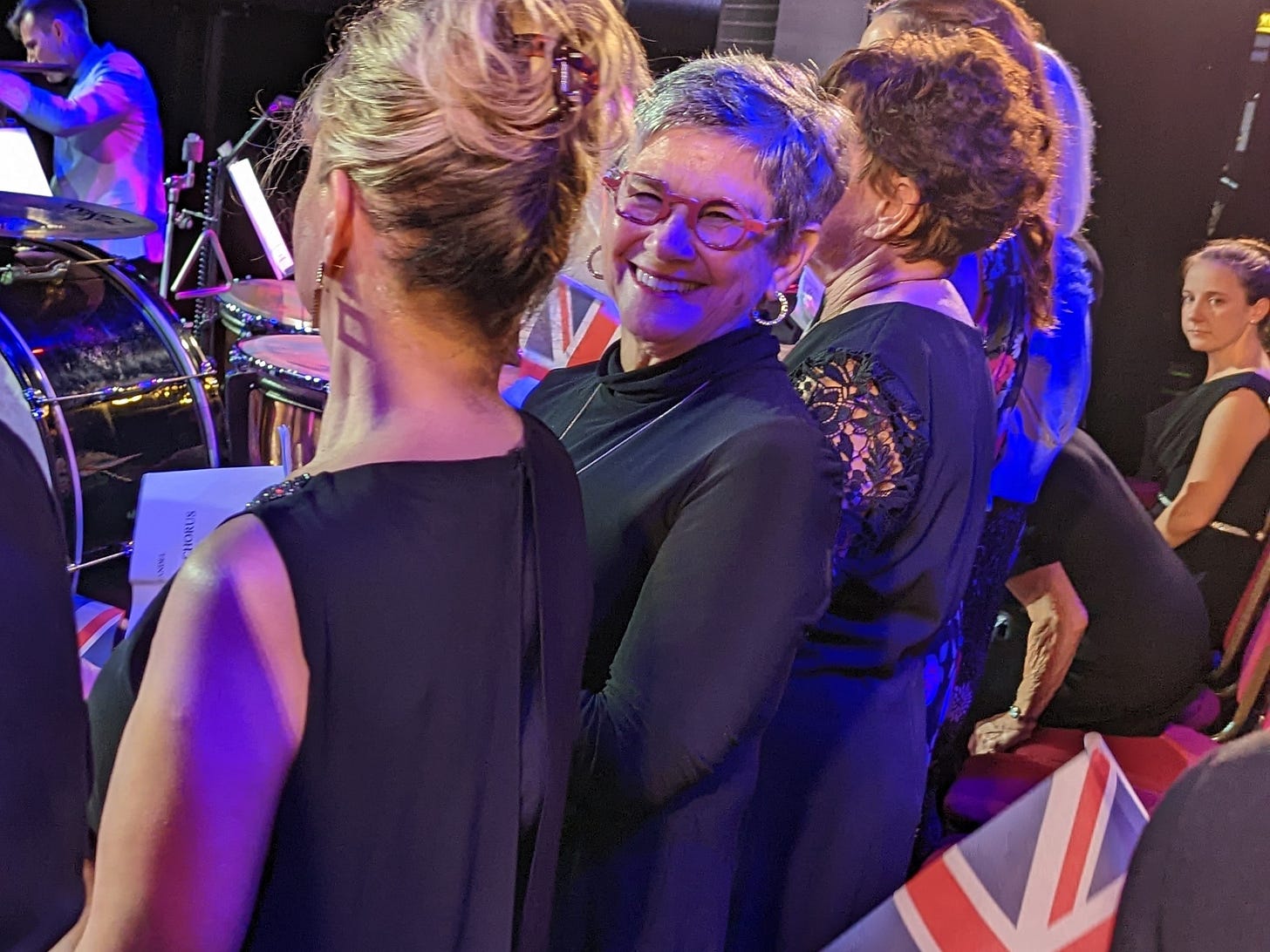The author’s wife looks back at the start of the performance
She was determined. I wasn't going to ruin her concert. But my seven-year-old brain didn't understand.
My focus — to the extent that a seven-year-old could focus on anything — was on my gray flannel shorts, white shirt and red snap-on bow tie.
I was nervously excited by my presumptive holiday concert performance on the school stage before a live audience of parents and grandparents.
Ours was the Gorsebrook School Grade Two Rhythm Band. We were without real instruments. Our job was to accompany Mrs. Brown at the piano. I played sticks. Tap, tap, tap. And, in my mind, at least, I was managing satisfactorily.
We lined up, single file, ready to mount the steps to the stage. I was in the middle of the pack, shuffling my feet. Then we began to move and just before I reached the first of three steps to the stage, Mrs. Brown intercepted me. She took the stick from my left hand and said: "You just tap your hand, dear."
I was shaken but didn't immediately appreciate what had happened. As a more mature person, I would have asked WTF? But as a seven-year-old, it took me a while — perhaps days — to figure it out. Then it became clear. From that moment and thereafter, I understood. I had no musical talent.
Sixty-five years later, my wife and I made the crossing on Queen Mary 2 from New York to Southampton. Also on board, not coincidentally, were Anthony Inglis and the National Symphony Orchestra, who were to deliver a "Last Night at the Proms" type concert, typically performed at Royal Albert Hall.
We were intrigued when Maestro Inglis asked for volunteers to sing with the orchestra. With some trepidation, we joined the choir and after three rehearsals we were on stage for the climactic final night performance, seated behind the National Symphony Orchestra, taking direction from Maestro Inglis.
The lights dimmed, Maestro Inglis appeared to polite applause and, after some dramatic stabbing of the baton into the bright stage lighting, we were suddenly into the Hallelujah Chorus.
In my preparation, I had counted. Ten hallelujahs to begin. I valiantly attempted to maintain my bass line, occasionally consulting the musical score in my hand that remained, to me, largely indecipherable. Almost before I knew it, we were finished with, not only Handel, but Rule Brittania, Jerusalem and Land of Hope and Glory.
Audience members jumped to their feet. They cheered. They applauded. They waved Union Jacks. Maestro Inglis bowed to the audience and then turned and beamed at us. And then orchestra members, in their white dinner jackets, turned their backs to the audience and focused their applause on us, a group of star-struck amateurs.
I also beamed. Again I wore a bow tie, but the shorts had been replaced by a tuxedo. And, WTF had been replaced by a recognition that, 65 years after a purposefully-muted concert debut, I had delivered what, for me, was virtuosity, a performance of historic personal significance that defied the expectations of that small teacher.
As we left the stage, also in single file, I reflected momentarily on Gorsebrook School. And I said to myself: "Take that, Mrs. Brown."
Applause and vindication






All I can say is that the author and his wife make beautiful music together. Thank you for this delightful piece. It warmed this wintry Sunday.
Connections with the past are the little jewels we are given as we age. That's a good one.